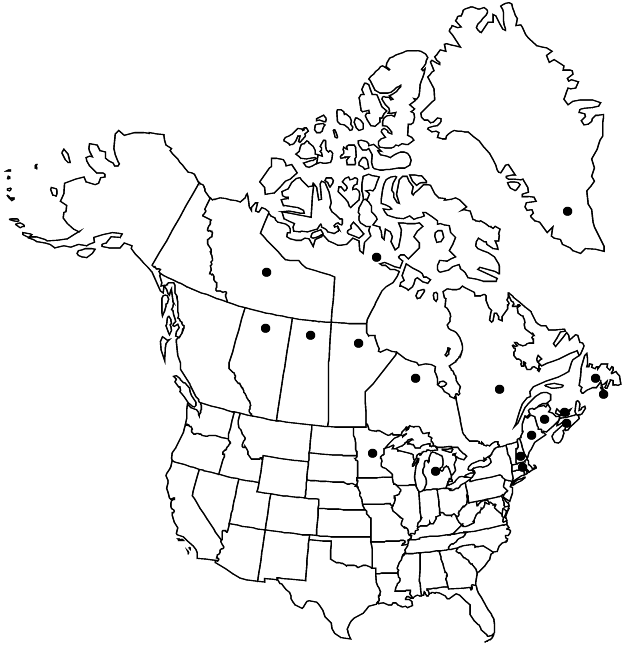Sagina nodosa
Vers. Darstell. Alsin., 18. 1833.
Plants perennial, tufted, pubescent or glabrous. Stems ascending to loosely spreading or prostrate, simple or with few to many lateral branches bearing only tiny, succulent, subulate leaves, not filiform. Leaves: axillary fascicles of subulate, fleshy leaves among distal cauline leaves, giving knotted appearance; basal ascending, forming tuft, not in rosettes, blade linear, ca. 15–30 mm, herbaceous, apex apiculate to mucronate, glabrous or glandular; cauline conspicuously connate basally, cuplike, proximal with blade linear to subulate, apex apiculate to mucronate, glabrous or glandular-pubescent, axillary fascicles of leaves absent; distal with blade subulate, 1–1.5 mm, fleshy, apex mucronate, glabrous. Pedicels filiform, base glabrous or glandular-pubescent. Flowers terminal and axillary, 5-merous or 4- and 5-merous; calyx base glabrous or glandular-pubescent; sepals elliptic, 2–3 mm, hyaline margins rarely purplish, apex frequently purplish, obtuse to rounded, remaining appressed after capsule dehiscence; petals elliptic to orbiculate, 3–4.5 mm, ca. 2 times sepal length; stamens 8 or 10. Capsules 3–4 mm, longer than sepals, dehiscing to base. Seeds dark brown, ovoid to reniform, laterally compressed, 0.5 mm, smooth or distinctly pebbled, abaxial groove present or absent.
Distribution

North America, Europe.
Discussion
Subspecies 2 (2 in the flora).
Selected References
None.
Key
| 1 | Stems glandular-pubescent; pedicels distally glandular-pubescent; bases of calyces glandular-pubescent; basal leaf blades often glandular-pubescent (especially on margins and midrib) or glabrous | Sagina nodosa subsp. nodosa |
| 1 | Stems glabrous or occasionally weakly pubescent at nodes; pedicels distally glabrous or occasionally weakly glandular-pubescent; bases of calyces glabrous or weakly glandular-pubescent; basal leaf blades glabrous | Sagina nodosa subsp. borealis |